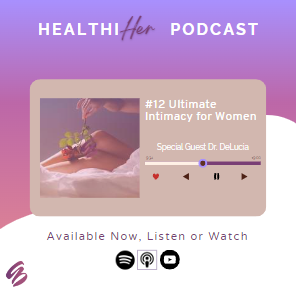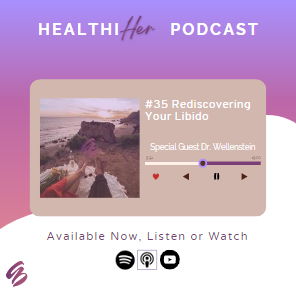Libido and Sexual Dysfunction in Cincinnati
Understanding lack of Sexual Desire.
Libido, or a women’s interest in and desire for sexual intercourse, is complicated, but it plays a vital role in how we feel about ourselves, our overall health, and the success of our relationship. Several issues, from physical to psychological, can impact how your libido functions.
It is very common for a woman’s libido to change starting as early as age 35.
What Does this Mean?
Lifestyle, family planning, stress, and hormones all play a role in decreasing or completely eliminating your interest in sex.
Intertwined with interest is how pleasurable sex is for you and your partner.
Hormones, including the sex steroids (estradiol, progesterone, and testosterone), adrenal hormones (DHEA and cortisol) , thyroid hormones, and prolactin can influence desire.
Return to Hormones ^Vaginal dryness (atrophic vaginitis) can lead to painful intercourse. Usually the result of decreased hormone levels and aging, atrophic vaginitis causes changes in the vaginal tissue, decreased lubrication, painful intercourse, and hence a low interest in sex.
Return to Vaginal Dryness ^Medications can be toxic to sex drive. Depression and anxiety medications, known as SSRIs and SNRIs (examples are Prozac, Zoloft, Effexor, and Cymbalta) classically decrease interest in sex and ability to achieve orgasm. Oral birth control pills decrease Testosterone, lowering sexual desire. Other examples of medications that are toxic to your libido are: over-the-counter anti-histamines like Benadryl, opioid pain medications like Percocet and Vicodin, B-blockers which treat blood pressure and heart conditions, and Benzodiazepines like Valium and Xanax commonly taken for anxiety. Our goal is to minimize/eliminate the need for these medications when possible by using natural alternatives.
Return to Medications ^Genital mismatch (defined as the increased diameter of the vaginal canal, often in conjunction with decreased size of the erect penis) is extremely common as sexual partners age. Childbirth, weight gain, chronic straining (from constipation or difficulty with urination), and pelvic injury (often from pelvic surgery) results in vaginal laxity, also known as Vaginal Relaxation Syndrome. Weakening of the muscles that support the pelvic organs causes prolapse, or a “dropping down” of the uterus, vagina, bladder and/or rectum. In addition to causing issues with bowel and bladder control, vaginal relaxation can lead to decreased stimulation and pleasure during sex, especially if a partner’s penis has also decreased in size due to the aging process.
Return to Genital Mismatch ^Lifestyle factors can also interfere with libido. Lack of sleep, lack of excess, poor diet or increased stress can interfere with intimacy. Depression/anxiety and weight gain can change your comfort level with your body and sexuality can negatively impact interest in sex.
Return to Lifestyle Factors ^Other gynecologic concerns can play a role. These include: dyspareunia (chronic painful sexual intercourse), lichen sclerosis (a condition that causes changes in the appearance of the skin of the vulva, results in chronic itching, pain, and scarring of the vulvar tissue), vulvar vestibulitis (a chronic pain syndrome possibly linked to chronic yeast, bacterial vaginosis, or HPV infection), other vaginal infections, or heavy, prolonged menstrual bleeding.
Return to Gynecological Concerns ^We encourage you to visit our section on Bio-Identical Hormone Optimization. If you are interested in exploring this further, we encourage you to schedule an appointment with one of our providers so we may discuss the benefits of hormone therapy.
Return to Optimization of female sex hormones ^Fortunately, there are now several options, both hormonal and non-hormonal, available to help improve vaginal dryness and elasticity of the vaginal tissue. Often several modalities will be necessary to achieve non-painful, pleasurable intercourse. As discussed above, bio-idential hormone replacement, through pellets and creams is a mainstay for treatment. Non-hormonal options which patients have found to be extremely beneficial are the O-shot® and FemiLift®. The Orgasm Shot uses Platelet Rich Plasma to improve vaginal lubrication, improve tissue elasticity, and increase clitoral sensitivity. The Intima® uses a fractional CO2 laser to restore vaginal tone, flexibility and shape. An added benefit is decrease in stress incontinence, or leaking with coughing, sneezing, laughing and exercise.
Return to Treatment of vaginal dryness ^As described above,FemiLift® laser can be used for vaginal tightening, while the Priapus Shot® can improve erections and size of penis for male partner. Other options for treatment include surgical procedures, when necessary, to address organ prolapse, especially when leading to bowel and bladder dysfunction.
Return to Vaginal/Vulvar rejuvenation/Genital Mismatch ^An overall evaluation of general health, including cortisol levels/adrenal function, insulin resistance, and thyroid testing when appropriate, to aid in weight management and optimization of energy.
Return to Evaluation of General Health ^Specific treatment of any gynecologic concerns which may interfere with a healthy libido, especially chronic infections and lichen sclerosus.
Return to Gynecologic Concerns ^Improvement in sensitivity of the clitoris, intensity of orgasm, and lubrication of vagina through the O-shot® will not help with libido, but will improve pleasure and sexual satisfaction.
Return to Improve Sensitivity ^Process
Understanding my Loss of Sexual Interest
Step 1.
Our providers have trained across the country to become experts in not only diagnosing the cause for your low libido, but also in offering you multiple treatment modalities, both traditional and cutting edge, to boost your interest and pleasure in sex and achieve your health goals.
Step 2.
Your initial consultation with one of our providers will begin with a thorough look into your past medical and surgical history, family history, and current medications, with specific attention paid to the symptoms you are struggling with, including a vaginal exam. Appropriate blood work will be drawn. This office visit and blood work will be billed to your insurance company.
Step 3.
We will see you back in the office in 1 to 2 weeks, review your test results and initiate appropriate therapy. If we recommend any procedures not covered through health insurance, the cost will be provided to you. This office visit is billed to your health insurance company.
By addressing the various causes and multiple treatment modalities for low libido, we are able to offer you a comprehensive approach to improving you interest and pleasure with sex, and ultimately the quality of your life.
VIDEOS
How to Have Better Sex
Sexual Wellness Options (Men & Women)
HealthiHer™ Podcast
#12 Ultimate Intimacy for Women

Women’s Intimacy specialists talk about the best treatments and how the medical world has shifted. Continued…
#35 Rediscover Your Libido

How can you reclaim lost libido? Dr. Brenner & Dr. Wellenstein have a few treatments & practices in mind. Continued…
Schedule a Consultation
It's simple— identify the problem areas of your body and we will recommend the right treatment plan for you.





